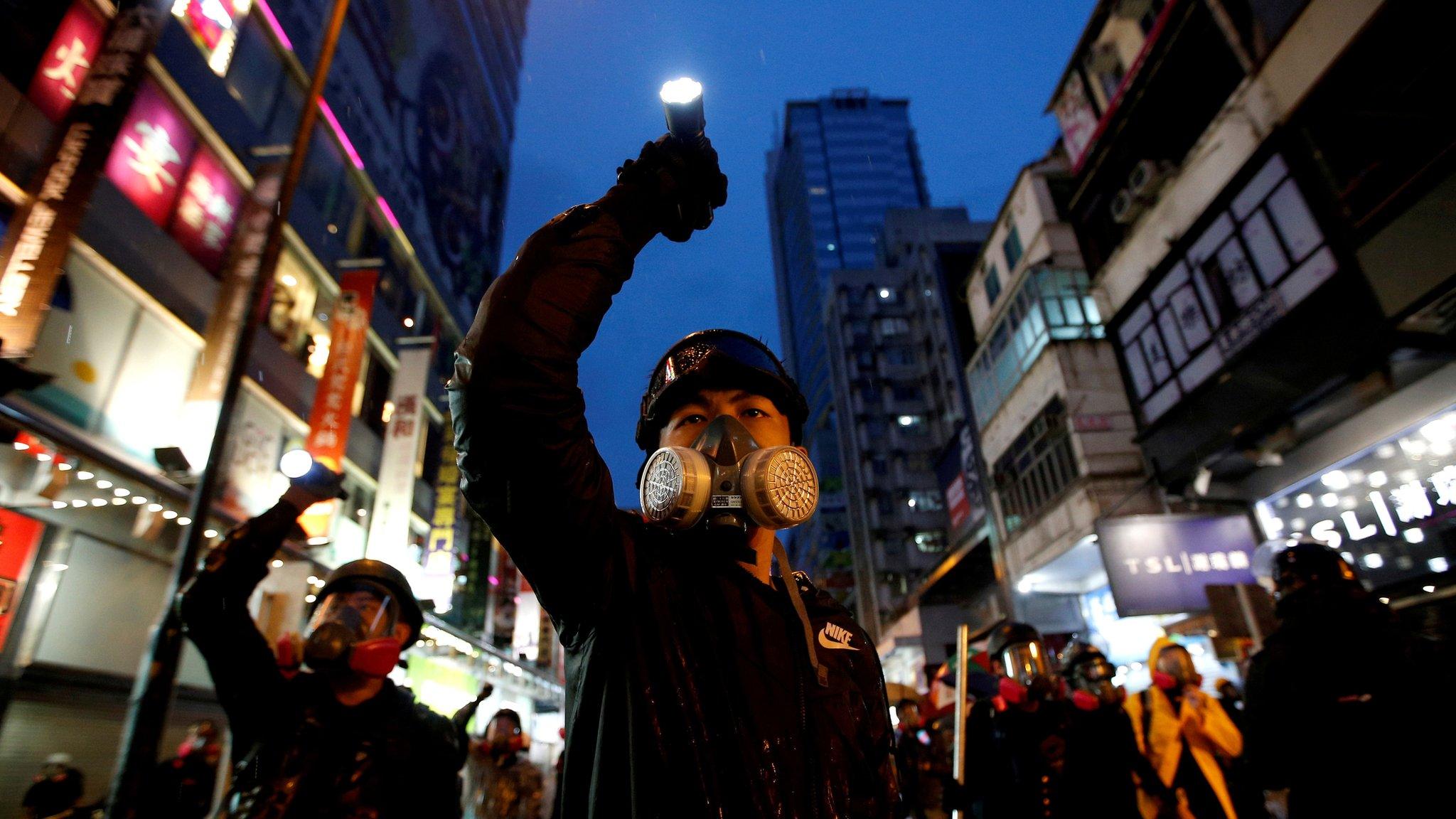Hong Kong protests: Clashes as police fire tear gas into rail station
- Published
Violence erupts in HK train stations
Police officers in Hong Kong stormed enclosed railway stations on Sunday, firing tear gas in an effort to force out protesters.
One video inside Tai Koo station showed officers firing what appeared to be non-lethal ammunition at close range.
It also showed several police beating people with batons on an escalator.
In the bustling central Wan Chai district, petrol bombs and bricks were thrown at police, who responded by charging at protesters.
A number of people, including a police officer, were injured in the clashes.
The protesters have started to adopt new tactics, striking in several areas in smaller groups before running when the police arrive, says the BBC's Stephen McDonell who is in the city.
Hong Kong's mass demonstrations and unrest show no sign of abating, more than two months after they were sparked by a controversial extradition bill.
What's the latest?
On Sunday afternoon, a peaceful rally in the city's Victoria Park led to clashes when protesters moved out of the area and marched along a major road despite a police ban.
There were confrontations in several central districts and police used non-lethal bullets in an attempt to disperse the demonstrators. Tear gas was fired in the busy shopping district of Tsim Sha Tsui as well as in Wan Chai on Hong Kong Island.
One image widely shared on social media showed a woman, who was reportedly shot by a police projectile, bleeding heavily from her eye.
Allow X content?
This article contains content provided by X. We ask for your permission before anything is loaded, as they may be using cookies and other technologies. You may want to read X’s cookie policy, external and privacy policy, external before accepting. To view this content choose ‘accept and continue’.

Tear gas was also fired into a metro station in Kwai Fong, and local media reported that it was the first time police had fired tear gas into an enclosed metro station to disperse people.
Allow X content?
This article contains content provided by X. We ask for your permission before anything is loaded, as they may be using cookies and other technologies. You may want to read X’s cookie policy, external and privacy policy, external before accepting. To view this content choose ‘accept and continue’.

Local media outlets reported that suspected undercover police officers had dressed-up as protesters to make surprise arrests on Sunday night.
Mother demonstrating: "I'm finding Hong Kong is getting not suitable for kids"
Sunday also saw the third day of a peaceful sit-in at Hong Kong's international airport. There have been no reports of arrests there and flights are operating as scheduled.
Why are there protests in Hong Kong?
Demonstrations began in opposition to a proposed extradition bill, which would have allowed suspected criminals to be sent to mainland China for trial.
Critics said it would undermine Hong Kong's legal freedoms, and could be used to silence critics.
Although the government has now suspended the bill, demonstrators want it to be fully withdrawn.
Hong Kong demonstrators used lasers to create a light show in an anti-government protest
Their demands have broadened to include calls for an independent inquiry into alleged police brutality, and an amnesty for all arrested protesters.
Hong Kong is part of China but its citizens have more autonomy than those on the mainland. It has a free press and judicial independence under the so-called "one country, two systems" approach - freedoms which activists fear are being increasingly eroded.
- Published9 August 2019
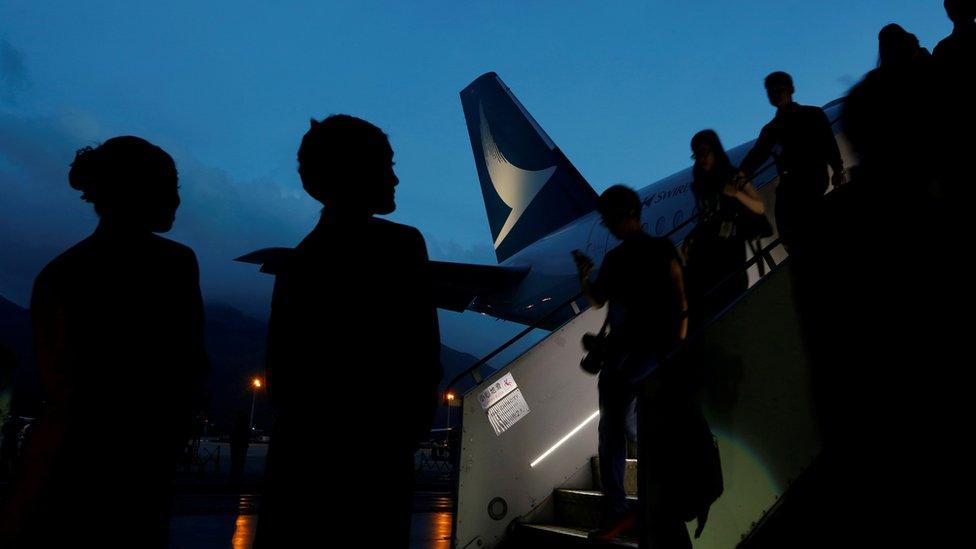
- Published9 August 2019
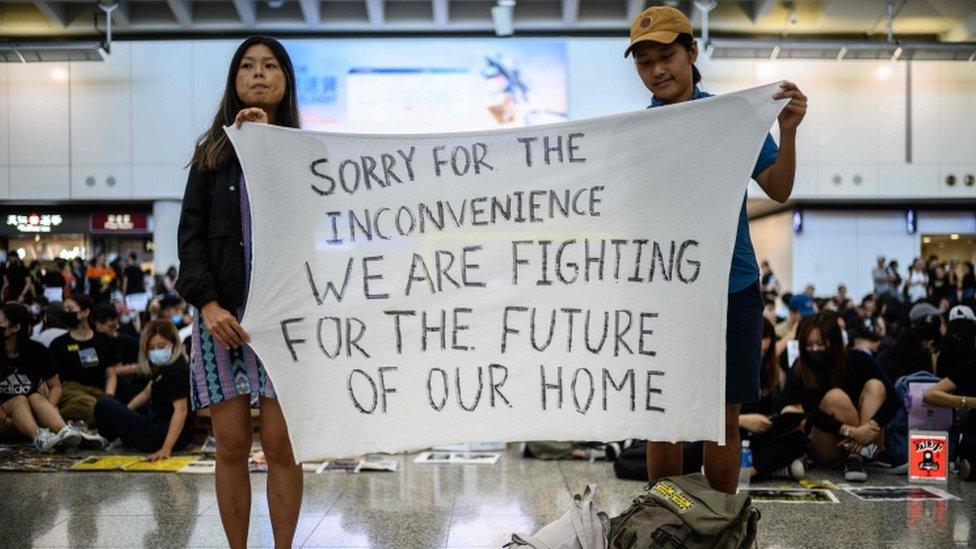
- Published9 August 2019
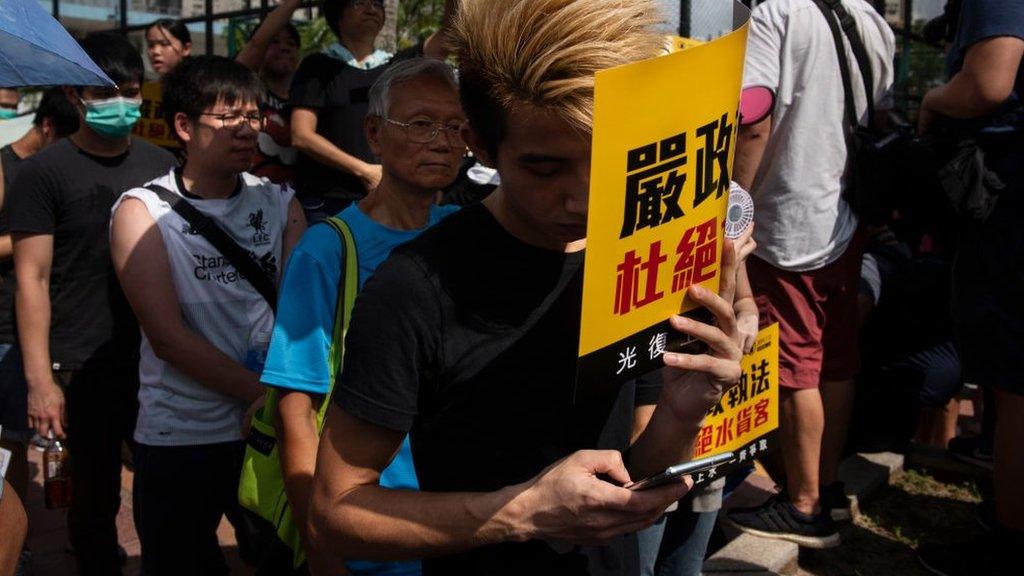
- Published12 August 2019
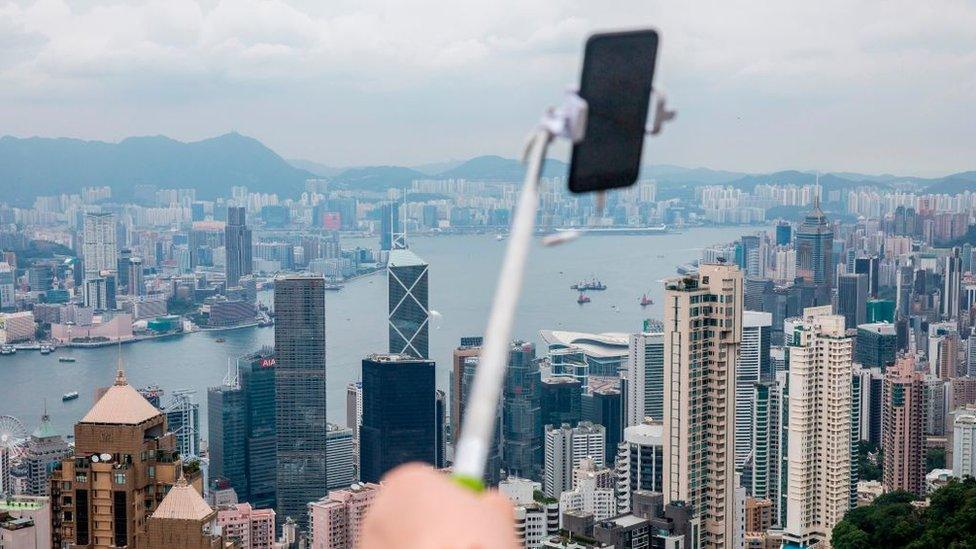
- Published21 May 2020
